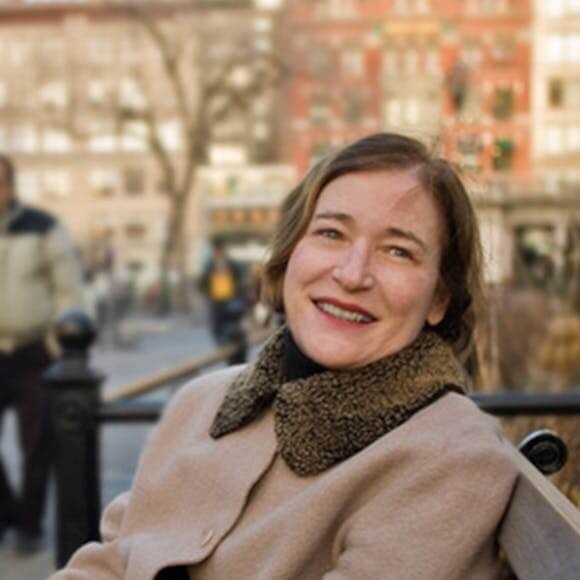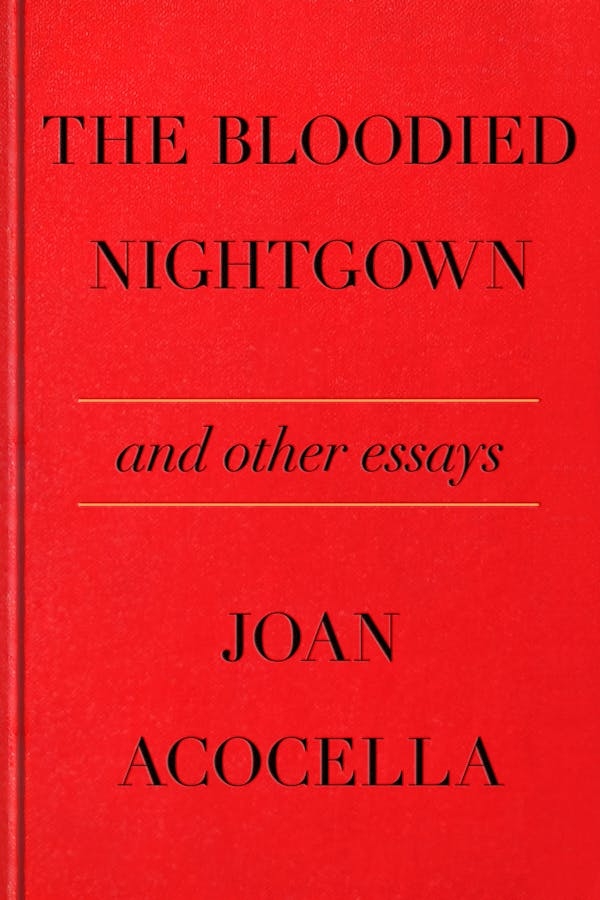Review of “The Bloodied Nightgown and Other Essays,” by Joan Acocella
Review by Michael Quinn
When you read a newspaper or magazine for a long time, you start to recognize the bylines. Favorite writers emerge. Over time, you begin to feel like you know them. And you do. You know how they think and feel—the good ones, anyway.
Joan Acocella was one of the greats. She joined The New Yorker as a staff writer in 1995 and served a long spell as the magazine’s dance critic. She wrote about this high art form in a down-to-earth way. She helped you appreciate what was wonderful about a piece, dancer or choreographer. But she also pointed out the sweat stains under the arms. When you saw a dance she’d written about, her words would return like a little conspiratorial nudge in the ribs. She was a wonderful imaginary seatmate. She encouraged you to notice things for yourself.
Dance was only one of the things Acocella wrote about. She was interested in artists of all stripes. And she was especially interested in what makes them tick.
Acocella died this past January at 78, right before her latest book came out. “The Bloodied Nightgown” is a collection of 24 essays written for The New Yorker and The New York Review of Books between 2007 and 2021. The pieces “shuffle back and forth between the artist and his/her art.” Acocella’s insights illuminate both brilliantly.
The collection takes its provocative title from an essay on Bram Stroker’s “Dracula.” Acocella traces the birth of the modern vampire to the present day, namechecking “Buffy the Vampire Slayer,” “Twilight” and other descendants. “Cults often gather around powerful works of the second rank,” Acocella sniffs. The secret to the success of “Dracula,” she believes, is its structure: a collection of allegedly first-person documents— diaries, letters, newspaper clippings—and different narrative voices, all of them rational and reluctant to accept what’s happening (That’s a bird, not a bat, right?).
“Queen of Crime” explores the legacy of Agatha Christie, whose 66 detective novels gave us “plain old England” with its mannered upper-class, sitting room dramas and bloodless bonks over the head. There is minimal bloodshed in Christie’s novels, Accocella tells us, because “Christie disliked violence.” What she liked was creating characters. She gave us legendary ones like Hercule Poirot (the Belgian dandy whose ridiculousness belies his intelligence) and Miss Marple (who looks like a dithering old lady but has a mind like a steel trap). Like millions of people, Acocella enjoys Christie’s books. Uniquely, she points out that Christie is “not a great writer.”
The range in “The Bloodied Nightgown” is far-reaching and soaked with Acocella’s intelligence and wit. You often feel her impatience with pretentiousness and her glee whenever she gets to unstuff a shirt. She always cuts right to the heart of a matter. Considering one biography and the lengths it goes to make inane points, Acocella writes, “This is all very cheesy.”
In other essays, Acocella meditates on dictionaries and curse words, Grimm’s fairytales (violent with “almost no psychology”), the crime novelist Elmore Leonard, and visual artists including Francis Bacon, Edward Gorey, and Andy Warhol.
Acocella was schooled to think about an artist and their life as two separate things, as if you could extract one from the other and present it more purely that way. But to Acocella’s way of thinking, life is what makes an artist who they are and their work the singular thing that it is: “It was too exciting to watch these people, most of them young, with no money and no prospects, find their way into art.” It’s exciting to read about them, too. Acocella’s byline will be deeply missed.










